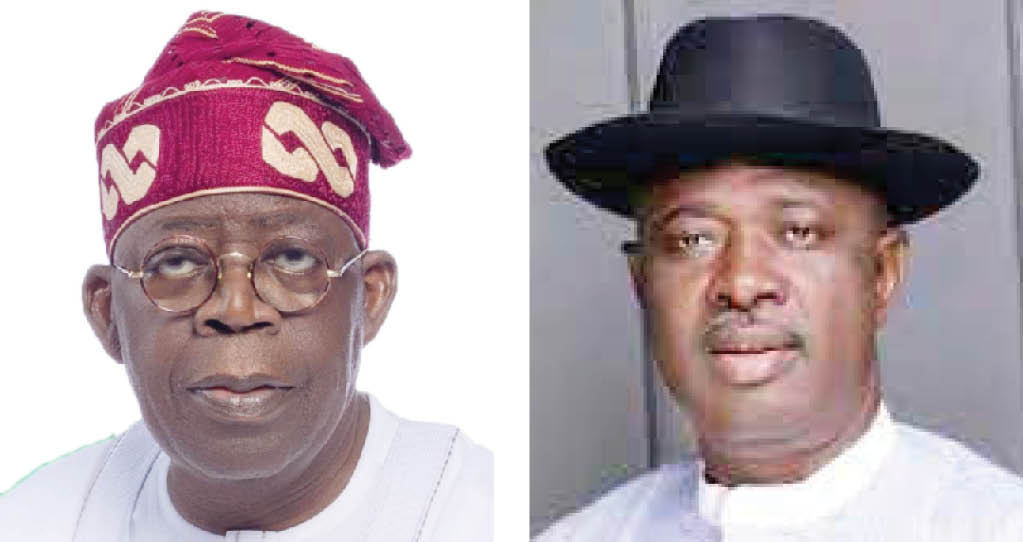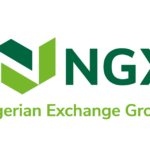The federal government last week, in a bid to attract fresh investments and ramp up oil output, announced the removal of the signature bonus requirement in bidding for oil blocks.
Minister of State for Petroleum Resources (Oil), Mr Heineken Lokpobiri, disclosed this on the sidelines of the ongoing 2024 Offshore Technology Conference (OTC), in Houston, Texas.
Announcing the removal of the signature bonus, Lokpobiri said over the years, payment of signature bonuses remained a huge bottleneck for investors as well as investment into the sector.
“Stakeholders had explained that globally, payable signature bonuses by awardees of an oil bloc or marginal field rank highest in Nigeria. On many occasions, the huge amount involved in payment of signature bonus was a setback for investors,’’ the minister added.
- Tenants groan as Abuja landlords increase rent
- Abuja public convenience operators denied sheltering hoodlums
A signature bonus is a single, non-recoverable lump sum payment made upfront by oil companies to the government for the rights to develop an oil block commercially after successfully winning in the license bid round.
FG earnings from signature bonus
In 2022, the NUPRC disclosed that it realised a sum of N174 billion from the signature bonuses paid by the awardees for the 2020 marginal oil fields, while it revoked marginal oil fields awarded to 33 companies for failing to meet the 45 days deadline required to pay the signature bonus for the fields.
The signature bonuses, which start at $5 million and go all the way to as much as $20 million, come after the initial payment of a host of fees – N3 million bid processing fee, $15,000 data prying fee, $25,000 data leasing fee, $50,000 competent person’s report fee and $25,000 field-specific report fee.
In the 2024 bid round, 667 firms eyeing 57 oil blocks on offer. However, President Bola Tinubu’s administration has drawn the ire of a large section of Nigerians after introducing new taxes as citizens continue to grapple with the worst cost of living crisis in decades.
In a memo, the Central Bank of Nigeria (CBN) last week ordered all commercial banks to impose a 0.5% levy on some electronic transactions. The fund is supposed to be transmitted to the Office of the National Security Adviser for the purpose of cyber security. The levy is imposed on the initiator of the transaction and not the receiver.
Several news sources who quoted the presidency said the directive has been temporarily reseeded by the president for further review.
Speaking on the new levy, Senator Ali Ndume opposed the proposed cyber security levy, citing concerns over increased tax burden without income increment.
“You cannot be charging taxes on people when you are not increasing their income. Their source of income, you are not widening it, you are not increasing it. I am not part of those that support levying people anyhow,” he said.
Since assuming the mantle of leadership, Nigerians have endured stifling economic reforms that have seen prices of goods and service hit roof tops
Just recently, the federal government through the Nigerian Electricity Regulatory Commission (NERC) increased electricity tariff for band ‘A’ customers, who would now pay N225 kilowatts per hour, up from the current N66.
Also, since the beginning of the year, the customs duty exchange rate has been changed more than 38 times, which has led to high volatility in cargo clearing costs, worsening inflationary pressures and aggravating investment risk, especially in the real sector of the economy.
Daily Trust also learnt that the government is considering lifting the suspended telecom tax and other fiscal policies on Nigerians to secure a new loan of $750 million from the World Bank.
According to a document published by the World Bank, the EMT levy on electronic money transfers through the Nigerian banking system, along with other taxes, is also being considered, in addition to the reintroduction of excises on telecom services.
President Tinubu suspended the five per cent excise duty on telecommunications and the Import Tax Adjustment levy on certain vehicles in July 2023. However, the document revealed that negotiations were underway between the World Bank and FG to secure the yet-to-be-approved loan.
While that is ongoing, the presidential committee on fiscal policy and tax reforms says there is a need to increase the value-added tax (VAT) rate.
Chairman of the Committee, Taiwo Oyedele said: “We have spoken to businesses about it and they won’t increase the product price. We want to make sure when we do VAT reform, no one will increase the price of commodities. We will work the mathematics with the private sector.”
Revenue from increase oil output will compensate for waivers
Speaking to Daily Trust on signature bonus waivers, Professor of Finance and Capital market at Nasarawa State University, Keffi, Uche Uwalake said: “I want to believe the government must have done the cost benefit analysis before the decision to waive signature bonuses for oil companies that win bids for oil blocs.
“Much as this would result in loss of revenue to the federation account, the benefits of waiving signature bonuses seem to outweigh the opportunity costs.
Let’s not forget that a major challenge facing the Nigerian economy today is how to ramp up oil production to take advantage of the favourable international crude oil price. Nigeria’s crude oil output has been below OPEC quota for many years now due to not only crude oil theft and pipeline vandalism, but also largely as a result of low investments in the oil sector.”
Uwalake argued that there is evidence to suggest that payment of nonrefundable signature bonuses has been a major disincentive to oil companies given that Nigeria ranks among the highest in the world in terms of such payments.
He noted that some oil companies after winning the oil bloc bids abandon the assets without going into immediate exploration.
He said: “So, I think the whole idea is to remove barriers to investments in the oil industry and give it a competitive edge considering that other countries also participated in the OTC conference in the USA to attract investors.
“This has become necessary against the backdrop of the recent notification of bidding process for the 2024 oil bid round involving 12 oil blocs by the NUPRC.
“On balance, I believe increased oil output from more investments will generate sufficient revenue for the federation account that will more than compensate for any loss arising from the waiver of signature bonuses.”
Also speaking on the development, Managing Director/ CEO of Dignity Finance & Investment Ltd, Chijioke Ekechukwu said one of the reasons Nigeria is not producing up to installed capacity of crude oil or even approved OPEC quota is not only because of oil theft but also because we still have redundant oil wells that need to be operational and productive.
“The offer of no signature bonus to foreign oil investors, in my opinion, is to attract these potential investors who would have been scared to pay the nonrefundable initial commitment fees.
“This is like allowing children to enter an amusement park for free, only to make them pay for the use of every ride in the park. The signature bonuses do not amount to so much compared to the real investment that will have multiplier and ripple economic effects.”
Tinubu’s tax reforms not to frustrate Nigerians — Shettima
Vice President Kashim Shettima says Nigeria’s tax reforms under the administration of President Bola Tinubu are targeted at improving the system for the overall benefit of all Nigerians.
He said contrary to speculations in some quarters, “We are not here to frustrate any sector of our economy but to create an administrative system that ensures the benefits of a thriving tax system for all our citizens.”
The vice president, represented by the Special Adviser to the President on General Duties (Office of The Vice President), Aliyu Moddibo Umar, spoke on Saturday at the close-out retreat of the Presidential Fiscal Policy and Tax Reforms Committee held at the Transcorp Hilton, Abuja.

 Join Daily Trust WhatsApp Community For Quick Access To News and Happenings Around You.
Join Daily Trust WhatsApp Community For Quick Access To News and Happenings Around You.

